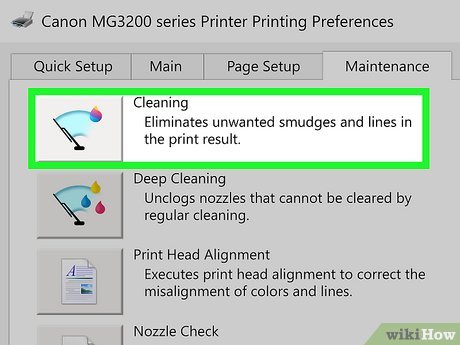Effective Ways to Watch Solar Eclipse Safely in 2025

Apply Now

 Its part of generated content. Can i generate another part?
Its part of generated content. Can i generate another part?
Essential Guide to Watching the Solar Eclipse Safely in 2025
As the 2025 solar eclipse approaches, many are gearing up for this spectacular astronomical event. Observing a solar eclipse can be an exciting experience for families and astronomy enthusiasts alike. However, taking the right safety measures is crucial for an enjoyable and safe viewing experience. This article will provide effective ways to watch the solar eclipse safely, ensuring you're well-prepared for this celestial phenomenon. We’ll cover everything from the importance of protective eyewear to ideal locations and viewing methods. Among the many benefits of participating in a solar eclipse event is the opportunity to engage with your community, learn about solar phenomena, and share memorable experiences with family. As you read through this guide, you'll find helpful tips and resources for an unforgettable solar viewing experience.Understanding Solar Eclipses and Their Types
Before diving into solar eclipse viewing tips, it’s essential to understand the basics of solar eclipses. Broadly, solar eclipses can be categorized into three main types: total, annular, and partial solar eclipses.Types of Solar Eclipses
A total solar eclipse occurs when the moon completely covers the sun, casting a shadow on Earth and creating a dramatic spectacle. During an annular solar eclipse, the moon covers the center of the sun, leaving a "ring of fire" effect. Partial solar eclipses happen when only a part of the sun is obscured by the moon. Each type offers a unique viewing experience and different levels of safety precautions must be taken.Solar Eclipse Dates and Timing
The solar eclipse in 2025 is expected to occur on April 8th. Depending on your location, you'll experience varying durations and magnitudes of the eclipse. To make the most of the event, check a solar eclipse calendar or map to find out when and how to observe it in your area, ensuring you can participate in your community’s events.Solar Eclipse Myths and Facts
There are numerous myths surrounding solar eclipses, often which leads to misunderstanding on how to safely watch a solar eclipse. For instance, some may think that covering your eyes with sunglasses is adequate protection; in reality, this is unsafe and ineffective. Reliable resources and educational materials on solar eclipses can dispel these misconceptions, helping you to focus on proper safety measures.Safe Solar Eclipse Viewing Tips
Taking the right precautions when viewing a solar eclipse is crucial to avoid serious eye damage. Here are some essential tips for safe solar viewing.Using Solar Eclipse Glasses
One of the most important tools for safely watching a solar eclipse is a pair of solar eclipse glasses. Make sure these glasses are certified to meet the ISO 12312-2 international safety standard. Regular sunglasses, even those with a high UV rating, do not provide safe viewing options.Solar Viewing Methods
In addition to glasses, there are various methods to safely observe a solar eclipse. One popular technique involves using a solar telescope or a solar pinhole projector. These enable you to project the image of the sun onto a surface, allowing for safe viewing. Researching and practicing these techniques beforehand can enhance your eclipse experience.Best Locations for Eclipse Watching
Finding the perfect location can significantly affect your viewing experience. Look for open areas with minimal obstructions to the horizon. Consider popular spots where the total eclipse will be visible in its entirety, allowing you to make the most out of the event. Check local astronomical organizations and community events for optimal viewing locations through a solar eclipse map.Preparing for the Solar Eclipse
Preparation is key to a successful eclipse viewing experience. Follow these steps to ensure you're well-equipped.Create a Solar Eclipse Itinerary
Planning your day around the solar eclipse is essential. Include the time of the eclipse, travel considerations, and any community events you want to attend. This will help you stay organized and maximize your enjoyment. Consider engaging in local solar eclipse festivals for a communal and educational experience.Gathering Solar Eclipse Equipment
In addition to solar eclipse glasses, consider other equipment such as solar filters for cameras and telescopes. This equipment allows for safe photography of the eclipse, capturing memories that you can cherish. Researching the best solar eclipse photography tips and gear can enhance your experience.Solar Eclipse Community Events
Connecting with others can add excitement and perspective to your viewing experience. Many communities organize solar eclipse events with educational resources, activities for kids, and opportunities to engage with seasoned astronomers. Participating in these gatherings ensures you contribute to the solar eclipse excitement while learning more about the phenomenon.Engaging in Solar Eclipse Education and Resources
Embrace the educational aspects of the solar eclipse with these resources and activities.Teaching Kids About Solar Eclipses
Educating children about solar eclipses can enhance their excitement and understanding of celestial events. Utilize interactive solar eclipse maps and engaging activities to teach them about the science behind eclipses. Encouraging their curiosity through solar eclipse science experiments can foster a lasting interest in astronomy.Solar Eclipse Virtual Events and Resources
If you cannot physically attend an eclipse viewing, engaging in virtual solar eclipse events is an excellent alternative. Many platforms offer live streams and educational content, allowing you to witness the eclipse from your home safely. Take advantage of solar eclipse monitoring tools and online simulations that can enhance your understanding of the event.Exploring Solar Eclipse Challenges
For those looking for a fun way to engage with the solar eclipse, consider creating challenges or projects related to solar events. Activities like solar eclipse art projects or DIY solar eclipse experiments can contribute to a fun learning experience.Frequently Asked Questions about Solar Eclipses
To wrap up this comprehensive guide, here are some common questions regarding solar eclipses and their safe viewing.What Are the Risks of Watching a Solar Eclipse Without Proper Eyewear?
Viewing a solar eclipse without proper protection can lead to permanent eye damage, commonly known as solar retinopathy. This condition occurs when the intense sunlight burns the retina, resulting in vision loss. Always ensure you are using certified solar viewing glasses to protect your eyes.How Can I Find Local Solar Eclipse Viewing Events?
Finding local viewing events can be done through community astronomical societies, schools, and museums. You can also check online forums and social media groups dedicated to astronomy enthusiasts for community events and meet-ups.What Equipment Do I Need for Solar Eclipse Photography?
If you are interested in capturing the solar eclipse, some essential equipment includes a camera with a solar filter, a tripod, and possibly a solar telescope. Learning about specific techniques and settings will also help you achieve stunning photographs of the event.
 Its part of generated content. Can i generate another part?
Its part of generated content. Can i generate another part?